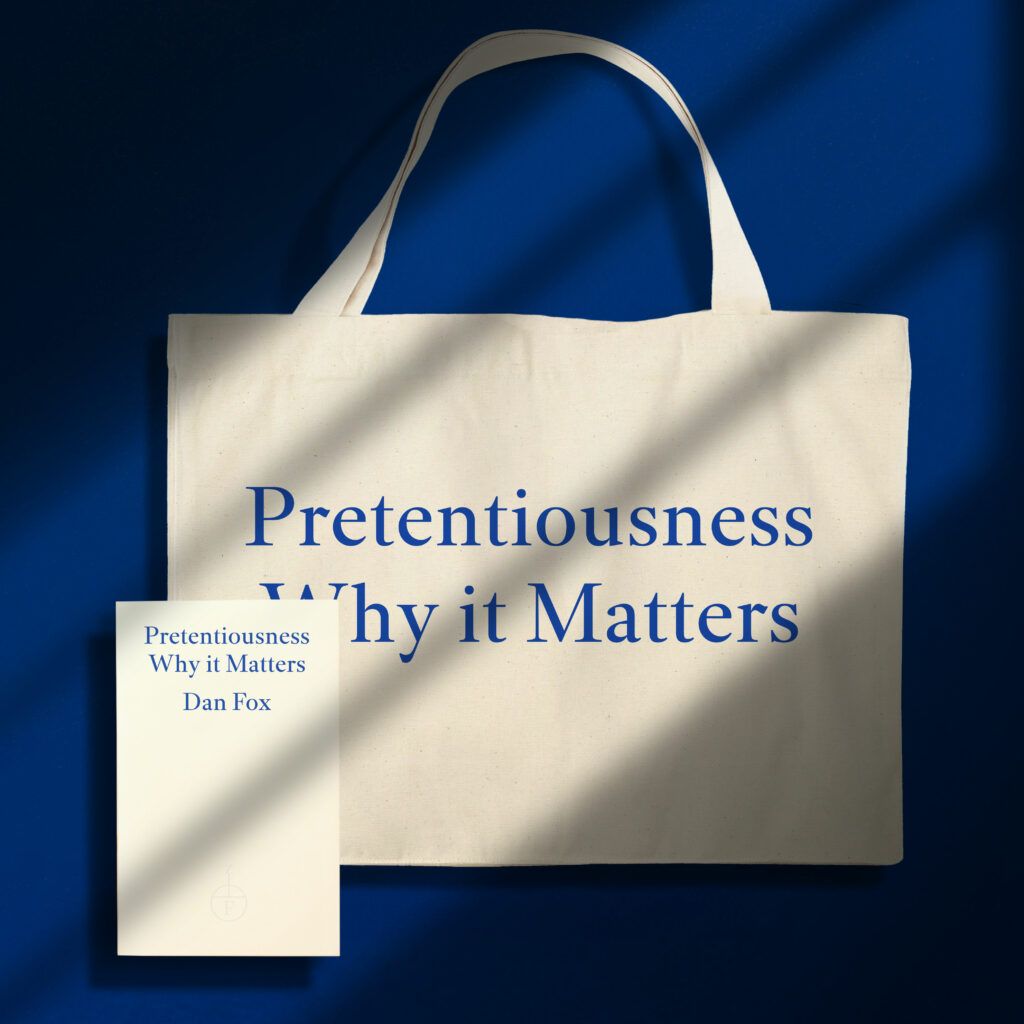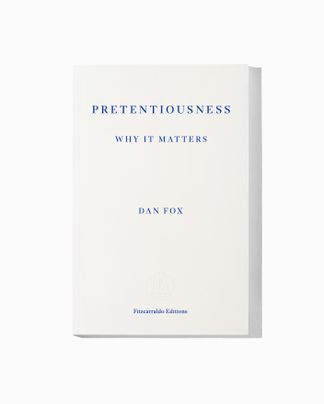‘2HB’ from Roxy Music by Roxy Music (1972)
The word ‘pretentious’ is frequently used as a cudgel of conformity, a way of telling people to know their place. Those who use it often make assumptions on behalf of others about what constitutes ‘authentic’ behaviour. Roxy Music co-founder Brian Eno was the son of a postman and lead singer Bryan Ferry was from a coal-mining family. The band, products of the 1960s British art school system, were interested in the uses of surface and collage, in self-created identity, the tensions between artifice and authenticity. This languid, dreamy track dedicated to Humphrey Bogart is about fandom and the desire, as Eno put it, ‘to find out what it would be like to be otherwise’.
‘Common People’ from Different Class by Pulp (1995)
A classic track about downwardly-mobile play-acting. But you know that, because only in Britain could a band have a Top Ten hit about class dissimulation.
‘David Bowie Wants Ideas’ from Box of Bongwater by Bongwater (1998)
‘I received a toy xylophone in the mail, and it was sent by David Bowie, saying to come visit him in his recording studio… Apparently he had sent many people the same xylophone with the same request, saying he was working on a new record, and anyone with some ideas should come visit him. I thought, yeah, he’ll take everybody’s ideas and we’ll never hear from him again…’
‘Do the Method’ from This Is It by The Method Actors (2010)
I chose the songs on this list for their relationship to the ideas in my book, not because I necessarily think they’re ‘pretentious.’ (They may be that too. You decide.) The Method Actors came from Athens, Georgia, part of the same scene in the 1980s that included REM and the B-52s. The lyrics to this song are caked in so much New Wave-style yelp and yowl that I can’t work them out. But based on the title, let’s assume – or pretend – that they’re singing about one of the central themes of Pretentiousness: acting. Director and teacher Lee Strasberg developed his acting technique, The Method, at The Actor’s Studio in New York in the late 1940s. Students were encouraged to physically live through the experiences of the characters they played in order to achieve a more ‘authentic’ performance. In preparing to write Pretentiousness, for fifteen years I pretended to be a writer. Ten years on from its publication, I have found impossible to extract myself from the role, and no closer to the truth of it.
‘Girl VII’ from Foxbase Alpha by Saint Etienne (1991)
This song is the thread that runs through the epilogue to Pretentiousness. Halfway through the track is a spoken-word section which lists off place names, alternating between stations on the London Tube map and cities across the world. Perhaps it’s embarrassing to say, but I find it deeply romantic, and embarrassment and romance are part of pretension. It’s about transforming the here-and-now with a dream of far-off places, and about recognizing the poetry in what’s closest to hand. ‘Canonbury, Alice Springs, Tooting Graveney, Baffin Island, Pollard’s Hill, Winnipeg, Plumstead Common, Hyderabad, Silvertown, Buffalo.’
‘Got to Be Real’ from Cheryl Lynn by Cheryl Lynn (1978)
Does it? Do I? Are you?
‘I Was a Maoist Intellectual’ from Tender Pervert by Momus (1988)
I included a story about Momus, aka Nick Currie, in Pretentiousness. The broadcaster Andrew Marr had written an exhibition review for the Observer newspaper. He picked on a couple he’d spotted at the show to whom he took a dislike, describing them as part of ‘a vast nomadic group, mostly young, urban, clever, a little intimidating, given to expensive hodden clothes and rimless glasses’. At the end of his piece, the critic declared, ‘I hate them.’ The couple happened to be Currie and his girlfriend, and Currie recognized himself. ‘The more I think about it,’ he wrote afterwards, ‘the more disturbed I get that this sort of thing – an unashamed and blatantly expressed hatred of sophistication – is what passes in the UK for cultural coverage.’
‘Leading a Double Life’ from Out of the Blue by ‘Blue’ Gene Tyranny (1978)
This gorgeous ballad is one part country, two parts Great American Songbook, three parts metaphysics. I used a verse for the epigraph to Pretentiousness. I’d say the song is about how we present different facets of ourselves according to who we’re with. But it will resonate differently with me tomorrow. All the most meaningful songs work like that.
‘Me Myself and I’ from 3 Feet High and Rising by De La Soul (1989)
A song about not letting people judge you by your image, and about the importance of being yourself, your other self and your other other self. It’s that old Walt Whitman line: ‘Do I contradict myself? / Very well then I contradict myself, / (I am large, I contain multitudes.)’
‘Munchausen’ from Dance and Walk by No Bra (2006)
A satire of the most insufferable species of art-savant, five-dimensional-bragging about how well-travelled, well-connected, wealthy, poor, chronically ill, subversive, creative, ethically superior and sexually adventurous they are. I used to meet a lot of people like that. These days I avoid them by staying home and reading. This song’s references have changed in the 20 years since it came out, but show-offs are eternal. Deep down, I would be horrified if they disappeared, not only for comedy’s sake, but for the possibility that there still remains – even in such a miserably fragmented and ennui-blitzed period as now – the idea that art might be something worth boasting about.
‘Pretend’ from Pretend by Nat King Cole (1952)
‘The little things you haven’t got, could be a lot, if you pretend.’ These days we call that magical thinking, or ‘manifesting’. Or method acting.
‘The Truth’ from The Truth by Prince (1998)
I love the line in this song that goes: ‘If there was just one day, that everyone tell the truth, we’d all trade bank accounts, and move back to Neptune.’ Every accusation of pretension says something about the accuser’s sense of their own authenticity. Real-deal vs. faker. Reading Prince’s unfinished, posthumous memoir The Beautiful Ones, there is a recurring sense that he recognized a productive conduit running between truth and pretence. He talks about being himself, he talks about constructing a fantasy. Sometimes it’s for technical reasons, such as playing all the instruments in the studio: to achieve the right intensity of performance ‘you have to pretend each time that this is going to be your only track and that you’re the only guy who’s going to play that instrument’. Sometimes it’s about image. Describing how his early fans dressed up, he says: ‘once you got your thing right, you’d stop looking at someone else. You’d be yourself and you’d feel comfortable.’ He wants other artists to be distinctive, to not fit in: ‘Sometimes I just wish that when I turn on the radio I could get that many different colors … I’m an alternative. I’m something else. And I long to hear something else from everybody.’ He asks his fans to think outside themselves. People would turn up on his doorstep and ‘make a really strange request from the call box outside … I’ll say, “Think about what you’re saying. How would you react if you were me?”’
‘Wuthering Heights’ from The Kick Inside by Kate Bush (1978)
A song inspired by the Emily Brontë novel of death and desire on the Yorkshire moors. It reached number one in five different countries. In 2022, her song ‘Running Up that Hill (A Deal with God)’ – a song about empathy, about wanting to see a relationship from the other person’s perspective – hit over a billion streams on Spotify when it was re-released off the back of its use in the Stranger Things TV series. I like these facts. Kate Bush’s popularity runs counter to the belief that it’s ‘pretentious’ for pop musicians to draw on ideas beyond the dreary bounds of standard love songs, or that audiences don’t have an appetite for complexity. Pop music was built by amateurs and autodidacts. Its promiscuous history of influences consistently undermines assumptions about how so-called ‘elitist’ art forms – in this instance nineteenth century novels – travel.


